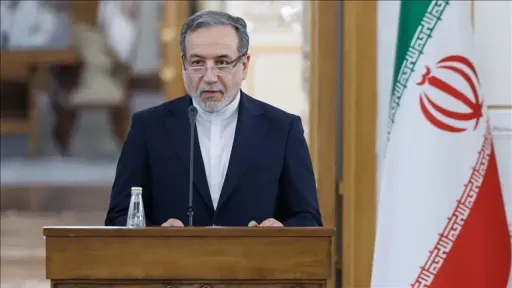Turkish President Recep Tayyip Erdogan warmly welcomed his Iraqi counterpart Barham Salih to Ankara on Thursday.
Salih, in a joint press conference, said he was visiting “brotherly country Turkey” and stated: “The relations with Turkey will be shoulder to shoulder, in full solidarity.”
In exchange, Turkish President Erdogan stressed that ensuring Iraq’s stability and security is at the heart of Turkish policy in the region.
The joint press conference highlighted the two countries’ desire to bolster bilateral relations and displayed their strong determination to deepen relations “with the aim of cooperation in every field,” as the Iraqi president said.
“There is growing disfavour of Iran among Iraqi political actors, hence the Iraqi state aims to diversify its foreign policy and develop relations with more countries,” said Professor Mesut Ozcan, an Ankara-based expert on Iraqi politics.
Ozcan also said that Salih is well aware Iraq strongly needs reconstruction in areas that are affected by war and knows that "Turkey already plays a significant role in the Iraqi reconstruction plan”.
During the press conference, Erdogan emphasised the countries’ cooperation in fighting terrorism and said Turkey is determined to deepen its support in the fight against terrorism with Iraq.
“Terror groups like Daesh, the PKK and FETO [Fethullah Terrorist Organisation] pose threats to both Turkey and Iraq, and the two countries should cooperate in fighting terror,” he said. Turkey regularly launches air strikes and military operations on PKK bases in northern Iraq as it aims to clear the terror group’s presence near Turkish borders.
Turkey conducted anti-terror operations in Sinjar and Mount Karajak in northern Iraq last December, in order to prevent the PKK from establishing terror bases in the region. Turkey has been in confrontation with the PKK since the mid-1980s and the conflict has claimed thelives of nearly 40,000 people between 1984 and 2018. The violence inflicted by the PKK on both Turkey's security forces and civilians has led to the group being designated a terrorist organisation by Turkey, the United States and the European Union.
On his visit, the Iraqi president emphasised the need to reconstruct the vast Iraqi area which was cleared of Daesh militants by its forces last year.
“Iraq expects Turkey's help in reconstructing regions of the country free of the grip of terrorists”, he said.
Reiterating Turkey’s pledge to restore terror-affected areas of Iraq, Erdogan said: “We are ready to contribute to infrastructure and development projects — construction of places which were harmed by conflicts being the priority.” In early 2018, at an international donor conference in Kuwait, Turkey pledged $5 billion in credit to Iraq, reserving the biggest share for reconstruction in the country.
A history of checkered relations
Despite the close ties that have recently been built between the two nations, they had previously been strained. Backed by Iran, former prime minister Nouri Al-Maliki’s sectarian politics had a negative impact on Iraq’s relations with Turkey. Ankara's policy was to set up a sensitive balance between Iraq’s Sunni, Shiite and Kurdish factions and also help the country to stay away from the civil war in Syria.
Shiite Maliki, who was prime minister of Iraq between 2006 and 2014, ordered the arrest of Sunni former vice president Tareq al Hashemi, called on parliament to remove his Sunni former deputy prime minister Saleh al Mutlaq and has warned of a regional Shiite-Sunni “cold war”.
After Maliki left power in 2014, there was relative progress in relations with the following Iraqi prime minister Haider al Abadi, who was in the office between 2014 and 2018.
Ankara and Baghdad again exchanged harsh words over Turkey’s military deployment in the northern Iraqi town of Bashiqa, near Mosul, at the invitation of Baghdad. Al Abadi, who extended the invitation to train Iraqi forces in their fight against Daesh during his Ankara visit in December 2014, later called on the troops to withdraw. From the end of 2015, when the Bashiqa crisis occurred, tensions between the two countries increased. Baghdad accused Ankara of intervening in Iraq's domestic issues, while Ankara blamed the Baghdad government on discriminating against the country's Sunni population.
However, ties were restored once again when Ankara supported Baghdad and took a firm stance against the Iraqi Kurdistan Regional Government’s (KRG) independence referendum in late September 2017.
The statements of Erdogan and Salih in the press conference have made it clear that the positive trend in the relations between two strategic neighbours would significantly bring benefits to both countries. But how long the positive trend will last, still remains as a question.























